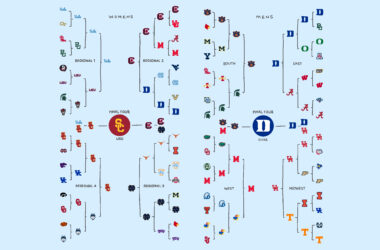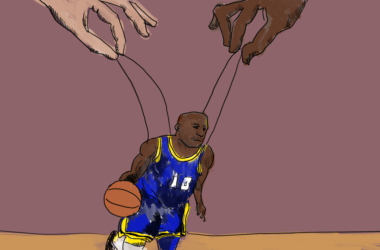At 19 years old, Dallas Mavericks guard Luka Dončić may be one of the most accomplished teenagers of our generation. Just a year ago, ‘Wonder Boy’ was a young basketball phenom for Real Madrid, leading the club to a Euroleague championship and earning league and championship MVP awards along the way.
After landing in Dallas as the third overall pick, Dončić is already a star. He is the unquestionable front-runner for Rookie of the Year, an elite crunch-time scorer, and has more All-Star votes than both Steph Curry and James Harden. ‘HalleLuka’ indeed: It looks like the Mavericks have found their star to carry them through the post-Dirk Nowitzki era.
Dončić’s immediate success in the league, however, was not a certainty—at least, not to everybody. Prior to the draft, league executives balked at what they perceived to be major red flags, such as Dončić’s Euroleague background, and his apparent lack of athleticism. One analyst even likened Dončić’s physique to that of a “7/11 employee.” The ghosts of past European draft failures such as Darko Miličić and Andrea Bargnani, often labeled as ‘soft’ or ‘products of weaker competition,’ clearly weighed on analysts’ minds leading up to the draft.
Close-mindedness could continue to haunt general managers for years to come. Comparing European players to one another is a lazy tendency that both fans and experts of the game continue to exhibit. Regardless of their prior experience, European NBA players must be either the next Dirk Nowitzki or the next Darko Miličić—a potential franchise cornerstone or a colossal misstep.
Somehow, an understanding of the varying levels of competition outside of the NBA is lost in translation. Prior to their drafts, Darko averaged 7.6 points per game (PPG) and 3.9 rebounds per game (RPG) for an unremarkable Serbian club, while Bargnani averaged 11.5 PPG and five RPG in the EuroLeague. While Bargnani was named EuroLeague Rising Star in 2006, Dončić was on another level, racking up an obscene number of accolades for someone his age.
The recurring ‘European bust’ opinion comes from pundits who are unable to set realistic expectations for players who come to the NBA outside of the NCAA system. Like any other prospect, these players may need a few years to adjust while some, like Kristaps Porzingis on the New York Knicks, find ways to make an immediate impact. Conflating expectations among players on the basis of their international background is sloppy analysis.
There are many variables that may hinder an international player’s success, like the potentially-different game pace or their responses to a new culture and language. It’s more comfortable for teams to pick homegrown talent that their audience is familiar with. But, basketball is an increasingly international sport. If scouts continue to neglect prospects overseas, they may miss out on their next superstar: Giannis Antetokounmpo was the 15th pick of the 2013 draft; Rudy Gobert was picked 27th in that same year; Nikola Jokić was the 41st pick in the 2014 draft. All came up against the concern over how their respective games would translate to the NBA and fell in the draft after teams passed on them in favour of the safe, local prospects whom they already knew.
Unlike these other players, though, Dončić’s potential was never a mystery. Making the Eurobasket 2017 All-Tournament Team alongside four NBA-calibre players at 18 years old is unheard of. No NCAA athlete played pro basketball at age 13 like Dončić did. Dončić has already faced the pressure and adversity of playing at a high level, which is clear in the way he asserts himself against even the best of the NBA. Most international prospects are selected based on the projection that they will be good someday down the line. Dončić is a basketball wonder now. And he’s only going to get better.








